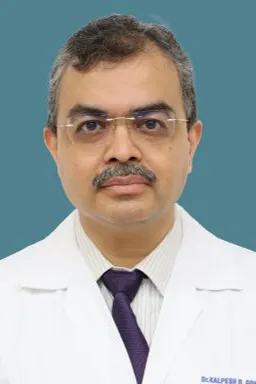Kidney Transplant
Overview
Kidney transplantation is a beacon of hope for individuals with end-stage renal disease (ESRD), where the kidneys lose their ability to perform essential functions - a condition commonly referred to as “kidney failure”. The procedure involves the transplantation of a healthy kidney from a living or deceased donor into a recipient having failing kidneys, adding many more years to the latter’s life.
SERVICES
- Expert Transplant Team
- Cutting-edge Technology
- Comprehensive Services
- Quality Care
- Compassionate Approach
Eligibility Factors for a Kidney Transplant
Renal Function
- Candidates for kidney transplantation must have end-stage renal disease (ESRD), as evidenced by significantly reduced kidney function. Lab tests, such as glomerular filtration rate (GFR) and creatinine levels, help determine the extent of kidney dysfunction.
Age
- There is no strict age limit for kidney transplantation, but age is a factor that is taken into account. Transplant centres assess the overall health and fitness of older candidates to ensure they can withstand the procedure and benefit from it.
Overall Health
- Candidates are evaluated for their general health and any comorbid conditions, such as heart disease, diabetes, or infections. These conditions may impact the success of the transplant and need to be managed before transplantation.
Immunological Compatibility
- Immunological tests are performed to assess the candidate's compatibility with potential donor organs, including blood type and tissue compatibility.
Tests Before a Kidney Transplant
- Chest X-Ray
- Renal Nuclear Scan
- Kidney Transplant Ultrasound with Doppler
- Kidney Biopsy
- Computed Tomography (CT) Scan/ Magnetic Resonance Imaging (MRI)
- Blood Group (ABO) Incompatible Kidney Transplantation
Methods for Obtaining a Kidney
Living Related Donors
- From a first-degree relative such as brother, sister, parents and children. This is possible because most people have two kidneys and can live in good health with one. A close relative is preferred as the tissue is likely to have a good match. The spouse and grandparents have also been included recently in the list of close relatives as per law.
Living Unrelated Donors
- These include cousins, aunts, uncles, nieces, nephews and other relatives who may be related to the patient through the maternal or paternal side.
Deceased Donors
- From a person who is brain stem dead and does not have kidney diseases, infections and cancers. Most suitable donors are the victims of road accidents, brain haemorrhage, brain tumours, etc.




